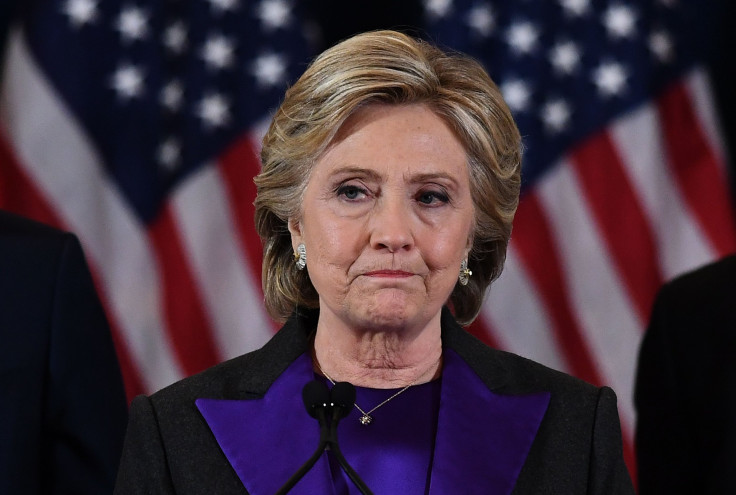Could Hillary Clinton Beat Donald Trump In 2020? What Former Democratic Nominee Said About The Upcoming Election

After falling short in the 2016 presidential election, Hillary Clinton told Variety in a wide-ranging interview that she has “the urge” to beat President Trump in 2020. She made the comments at the Sundance Film Festival, which is showing her docuseries “Hillary.”
"I certainly feel the urge because I feel the 2016 election was a really odd time and an odd outcome," Clinton said.
Despite losing the Electoral College, 304-227, Clinton won the popular vote by roughly 2.8 million votes. Three states swung the election for Trump: Michigan, Pennsylvania and Wisconsin. Special Counsel Robert Mueller provided evidence that Russian interference was "sweeping and systematic" during the campaign and led to several indictments.
Clinton also said she would "support the people who are running now and do everything I can to help elect the Democratic nominee."
Clinton has frequently commented on the Democratic primary, saying earlier this month that she stood by comments in her documentary that disparage Sen. Bernie Sanders, D-Vt.
"He was in Congress for years. He had one senator support him. Nobody likes him, nobody wants to work with him, he got nothing done," Clinton said in the documentary, referring to Sanders. "He was a career politician. It's all just baloney and I feel so bad that people got sucked into it."
The comments caused Clinton to be heavily criticized on social media. In response, Sen. Sanders said, “On a good day, my wife likes me.”
Clinton also made comments that seemingly refer to Democratic presidential candidate and Hawaii Congresswoman Tulsi Gabbard as a “Russian asset.”
“She’s the favorite of the Russians. They have a bunch of sites and bots and other ways of supporting her so far and that’s assuming Jill Stein will give it up because she’s also a Russian asset,” Clinton said in October in a podcast interview, likely referring to Gabbard.
In response, Gabbard filed a lawsuit last week asking for at least $50 million in damage from Clinton due to defamation.
“Whether out of personal animus, political enmity, or fear of real change within a political party Clinton and her allies have long dominated,” the lawsuit said. “Clinton lied about her perceived rival Tulsi Gabbard.”
© Copyright IBTimes 2025. All rights reserved.




















